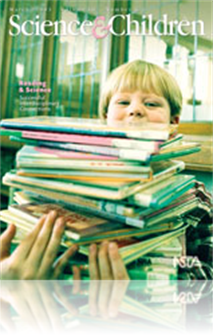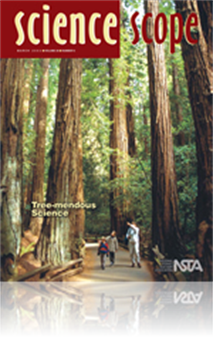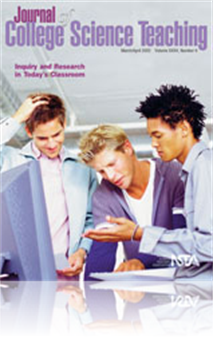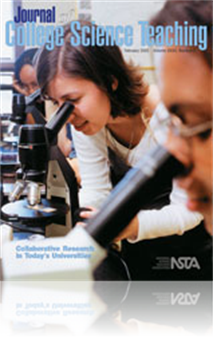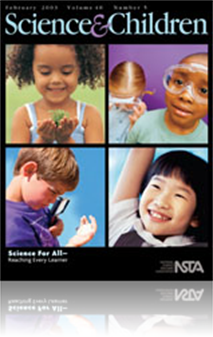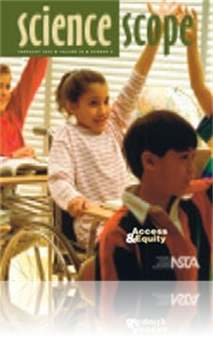All Resources
Journal Article
By spiraling and varying the curriculum, teachers can structure lessons with the appropriate activities for each student. Three lesson plans centered around the same experiment and the same big idea allow students to learn at their age-appropriate le...
Journal Article
The Ins and Outs of Guided Reading
A teacher and author of children’s books provides a model for incorporating guided reading strategies into the classroom. Includes extensions and cross-curricular activities along with suggestions of what to do before, during, and after reading....
Journal Article
The advancement of electric vehicle (EV) research is primarily due to increasing global concern over air pollution and greenhouse gases caused by vehicle emissions. This project gives students a deeper respect for the environment and a more incisive ...
Journal Article
Embed Assessment in Your Teaching
Broadly defined, embedded assessment using performance tasks requires students to write, read, and solve problems in genuine, rather than artificial ways. It is as an ongoing, cyclical process in which teachers gather information on their students’...
Journal Article
Science 101: How do plants make their own food?
Plants make their own food through a process called photosynthesis, a term that comes from the Greek language, meaning “arranging with light.” In this article, a botanist describes the fundamental concept of photosynthesis. ...
Journal Article
This activity focuses on Leonardo da Vinci's tree theory, which states that the cross-sectional area of a major limb is approximately equal to the cross-sectional areas of its two offshoot limbs. Students test this theory by collecting data from 10 t...
Journal Article
Undergraduate elementary education majors participate in an interdisciplinary course focused on modeling scientific systems. Students’ applications of three artificial intelligence concepts used in modeling scientific systems were investigated befo...
Journal Article
The Gender Gap in Science Education: Strategies to encourage female participation in science
Educational practices promoting female participation in science can be used to help lessen the persistent gender gap in secondary science classrooms. Educators must actively encourage young women's participation in science through constructive learni...
Journal Article
Motivating Students to Read Physics Content
Projects using trade books encourage students to learn various physics concepts and understand technical reading material. They can both reinforce and instruct science concepts and allow students a chance to acquire and process new information throug...
Journal Article
Careers in Science: An Interview with Forensics Technician Jason Birchfield
This column shares interviews with professionals using science in the workplace. In this month’s issue learn how Jason Birchfield became interested in forensics and how he's a working example of why science is for everyone....
Journal Article
Teaching through Trade Books: Seeing the Seasons
Children’s literature can be a wonderful springboard for classroom learning, motivating students to think scientifically, and helping them develop important science-process skills. The following books: When the Root Children Wake Up and Sky Tree w...
Journal Article
A strong multicultural curriculum and instruction can make significant changes in motivating students in science and mathematics. In an effort to increase participation in science, the authors offer suggestions for making science relevant to all stu...
Journal Article
Computers can be used as a focal point in a course introducing various scientific fields and underscoring the interdisciplinary nature of science. This article presents the objectives, pedagogy, resources, student evaluations of success, and author�...
Journal Article
A long-term collaboration between a teacher and a biomedical researcher taught third through fifth-grade students at a science focus school valuable lessons on the value of research. Students created models and presentations on the digestive system, ...
Journal Article
Give Me Some Skin: A Hands-On Science Activity Integrating Racial Sensitivity
What’s the largest, fastest growing, organ in the human body? It’s the tough, elastic, flexible, and waterproof covering that helps protect other organs and body parts from such things as germs, heat, cold, and sunlight—skin, of course! This li...



